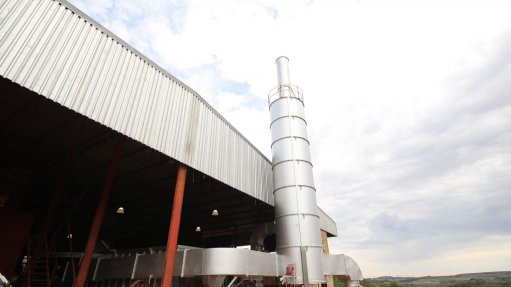
PROUDLY SOUTH AFRICAN The company’s water-intensive processing and wastewater treatment operations use local raw materials, technology and deployment
Activated carbon manufacturer Rotocarb aims to become the biggest activated carbon producer in Africa by 2019, owing to increasing demand and dependence on activated carbon in the wastewater treatment, purification and desalination industry.
Activated carbon is generally employed in the process of removing organic compounds and/or extracting free chlorine from water, thereby making the water suitable for discharge or use in manufacturing processes, Rotocarb director Brendyn Fahy explains.
He highlights the importance of the water purification industry as obvious in light of growing populations, which draw on finite water resources.
“It was a natural progression for us to take advantage of this gap in the market and establish our own activated carbon plant, targeting especially the precious commodity of water and its security,” Fahy enthuses.
He feels positive about achieving this goal, noting that the company’s second activator at its processing plant in Levubu, Limpopo, will go on line during the first quarter of this year, thereby enabling the company to supply 100 t/m of activated carbon.
This processing facility also includes gas handling and gas clean-up equipment as critical plant components.
“Our first milestone was establishing agreements with the Shigalo community around our facility to use the land in the Levubu area and supply the processing facility with employees.”
Thereafter, Fahy notes that the company secured its Air Emission Licence, as well as the South African National Standards certification of its product after commissioning.
However, he notes that, when demand increases, the company plans to expand, construct and commission an additional facility capable of producing 100 t/m of activated carbon in White River, Mpumalanga. This is likely to take place by the end of 2018.
Fahy mentions that the company’s solution for the county’s water-intensive processing and wastewater treatment operations is to use local raw material, technology and deployment to produce activated carbon, which is critical to the removal of impurities for water recovery and reuse.
Moreover, he notes that South Africa is a net importer of more than 700 t/m of activated carbon, spending nearly R200-million a year on imports.
However, Fahy states that Rotocarb’s ultimate goal is to ensure that South Africa becomes less reliant on imported materials and activated carbon to avoid the cost implications of the rand: dollar exchange rates.
“There is no reason why we, as South Africans, cannot make our own materials, and we really should be doing it already,” he states.
“We have targeted very specific adsorptive properties, densities and physical properties in terms of fixed carbon, ash, volatiles and sizing,” Fahy concludes.